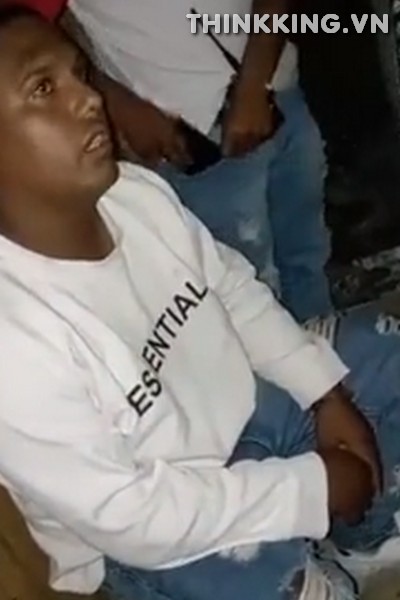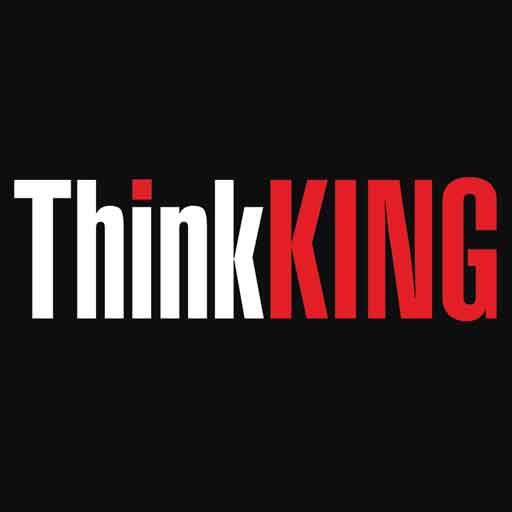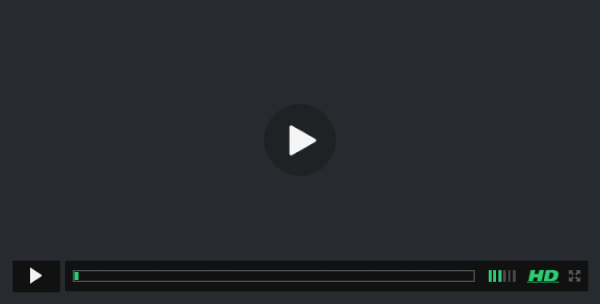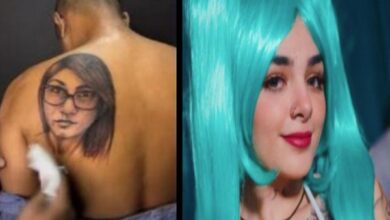The Mysterious Unfolding of Portal Zacarias Mangue 910
In the heart of the digital realm, where the lines between reality and fiction blur, there emerges a phenomenon sweeping across the internet with the force of a cultural tsunami—the “Portal Zacarias Mangue 910 Video Original.” It is not just a collection of pixels and digital sound bites; it is the epicenter of a viral sensation that has gripped netizens worldwide. With content that promises to transcend the ordinary, the “Portal Zacarias Mangue 910” beckons users to delve into the enigma of human existence through their screens. In a moment of digital stillness, the mangrove’s stagnant waters were stirred by an emerging video, a current so powerful it shook the foundation of our collective understanding of privacy and exposure. This is the tale of the “Portal Zacarias Mangue 910 Video Original,” where curiosity and controversy collide.Aprendamos más con Thinkking.vn
I. Unveiling the “Portal Zacarias Mangue 910 Video Original”

In the intricate tapestry of the internet, the “Portal Zacarias Mangue 910 Video Original” emerged as a beacon that captured global attention with its enigmatic content. The initial unveiling of the video sent ripples across the digital sea, shocking viewers and sparking a wave of social tremors. This wasn’t merely a visual spectacle; it was a profound disturbance in the digital ecosystem, shedding light on the ever-blurring lines between the right to information and the invasion of privacy. The video’s content, shrouded in mystery, raised questions about the boundaries of public curiosity and the sanctity of personal life in the virtual expanse.
The video’s viral dissemination was meteoric, epitomizing the essence of digital virality—a testament to our time when the spread of information, or misinformation, is as swift as it is uncontrollable. Within hours, the visuals from “Portal Zacarias Mangue 910 Video Original” had infiltrated social media platforms, forums, and conversations, often circumventing the reflection on the profound implications of such a rapid spread. This phenomenon underscored the dual nature of the internet as a tool for unprecedented connectivity and as a potential catalyst for ethical quandaries.
The public and private realms collided with the trajectory of this video, provoking a society-wide ethical debate. The content’s allure was undeniable, yet the personal integrity of the individuals involved was at stake. It was a stark reminder of the thin line that separates public interest from invasive voyeurism. The “Portal Zacarias Mangue 910 Video Original” inadvertently became a case study on the respect for individuality versus the insatiable curiosity powered by the digital age’s anonymity. The incident highlighted the dichotomy between the public’s right to know and the individual’s right to privacy, challenging viewers to reflect on their role in either respecting or breaching this delicate balance.
As we grapple with these questions, the case of “Portal Zacarias Mangue 910 Video Original” acts as a digital mirror, reflecting our collective conscience and the choices we make in a world where the personal can be unexpectedly thrust into the public eye with a single click.
II. The Digital Labyrinth: Truths and Consequences
In the labyrinthine world of online content, “Portal Zacarias Mangue 910 Video Original” stands as a vivid illustration of the unforeseen consequences that a digital leak can have on personal lives. The video’s subjects, referred to as Sogro and Genro, found themselves unwilling participants in a narrative that swiftly transcended the realm of private life. Their unintended exposure laid bare the far-reaching repercussions that extend well beyond a mere breach of privacy. These individuals were subjected to the court of public opinion, their digital footprints becoming indelible marks on the canvas of their lives. The incident raises critical questions about the permanence of digital content and its potential to inflict long-term social consequences, such as psychological trauma and altered personal relationships.
The societal repercussion of the “Mangue 910” video has echoed through the corridors of digital ethics, igniting a debate that delves into the responsibilities of media outlets in the age of instant information. As the video proliferated, so did the scrutiny over the role of the media in balancing the public’s right to information against the right to personal privacy. This episode served as a stark reminder of the media’s power in shaping public trust and the ethical obligations that come with it. The ripple effect of “Mangue 910” extends to the core of journalistic integrity, prompting a reevaluation of the boundaries between public interest journalism and the exploitation of individual misfortunes.
In essence, the “Portal Zacarias Mangue 910 Video Original” has become a flashpoint for ethical discourse, challenging both consumers and creators of media content to consider the long-term societal impact of their digital interactions. The portal not only reflects the complexities of human relations but also acts as a catalyst for a broader conversation about the evolution of privacy and the principles of responsible reporting in the modern era. As we navigate this digital terrain, the “Mangue 910” incident continues to serve as a critical case study for understanding the intertwining of personal dignity, public curiosity, and the media’s quest for truth in the information age.
III. Antecedents and Content of Portal Zacarias Mangue 910
The “Portal Zacarias Mangue 910” has positioned itself as a curator of viral narratives, meticulously selecting content that strikes a chord with the cultural zeitgeist. Its ability to identify and amplify stories that resonate with the collective consciousness has made it a formidable force in the digital arena. The platform’s curation process seems to be finely tuned to the pulse of contemporary society, capturing and presenting content that not only garners views but also sparks discourse and introspection. Each video, each story is a thread woven into the larger social fabric, reflecting the complexities, triumphs, and tribulations of our times.
A pivotal example of the portal’s impact is encapsulated in the Araraquara case. Here, the portal brought to light a video that illuminated the intricate social and family dynamics of the individuals involved, inadvertently thrusting them into a whirlwind of sudden fame—and notoriety. The video, which captured a deeply personal moment, raised profound ethical and privacy concerns. It questioned the boundaries of consent and the repercussions of digital content that escapes the confines of its intended audience. The individuals’ lives were irrevocably altered as they became subjects of public scrutiny and debate, their personal narratives escaping their control.
The unexpected spotlight cast by “Portal Zacarias Mangue 910” on the figures in the Araraquara video serves as a stark reminder of the double-edged sword that is social media and viral content. It underscores the need for a nuanced understanding of the implications of sharing private moments in public domains and the ethical responsibilities that content platforms, media, and viewers alike must shoulder. As such, the portal not only disseminates content but also challenges its audience to decipher the underlying messages and to reflect on the ethical dimensions of privacy in the digital age. The Araraquara case, like many others presented by the portal, continues to be dissected and discussed, highlighting the persistent and often unpredictable consequences of online exposure.
IV. The Viral Impact of “Mangue 910 Portal Zacarias”
The “Mangue 910 Portal Zacarias” transcends the realm of mere entertainment, emerging as a significant influencer of public opinion and a catalyst for ethical debate. Its viral content has not only captivated a vast audience but has also served as a springboard for societal reflection. The portal’s selection of compelling narratives has provoked discussions that delve into the core of contemporary issues, from the erosion of privacy to the ramifications of digital voyeurism. It has become a digital agora where the public convenes to dissect, debate, and digest the unfolding dramas that resonate with their own realities and fears.
However, the portal also operates in a gray area where the distinction between reality and staging becomes nebulous. The authenticity of content is often called into question, leaving viewers to grapple with the challenge of discerning fact from fiction. In an age where staged content can be engineered to mirror reality so closely, the “Mangue 910 Portal Zacarias” tests the acumen of its audience, compelling them to question the veracity of what they see and hear. This ambiguity fuels engagement, as users are drawn into a vortex of analysis and speculation.
The impact of “Mangue 910 Portal Zacarias” on digital media and public opinion is undeniable. It underscores the power of digital platforms to shape narratives and influence perceptions, often blurring the lines between genuine human experience and constructed reality. As consumers of digital media, the responsibility falls on us to navigate this complex landscape with a critical eye, recognizing our role in the viral ecosystem. The portal serves as a reminder that in the digital age, the impact of what we view, share, and believe extends far beyond our screens, touching the very fabric of society and the principles by which we live.
V. Conclusion: The Legacy of “Portal Zacarias Mangue 910 Video Original”
As the world continues to navigate through the complex digital landscapes, the “Portal Zacarias Mangue 910 Video Original” stands as a testament to the power of human curiosity and the responsibility that comes with it. This portal has not only captured the attention of the online community but has also sparked critical conversations about the very fabric of our digital existence. While it remains a source of intrigue and mystery, it serves as a reminder that every click, every share, and every view carries with it the weight of human narratives that demand our respect and ethical consideration.
Frequently Asked Questions (FAQ):
1: What is the “Portal Zacarias Mangue 910 Video Original”? A: The “Portal Zacarias Mangue 910 Video Original” is a digital platform that became the core of a viral phenomenon, known for hosting and spreading a particular video that raised profound questions about privacy, exposure, and the ethics of information sharing on the internet.
2: Why did the video from “Portal Zacarias Mangue 910” go viral? A: The video went viral due to its compelling content that starkly highlighted the tension between public interest and individual privacy, sparking widespread debate and reflection across various online platforms.
3: What are the ethical concerns surrounding the “Portal Zacarias Mangue 910”? A: Ethical concerns include the balance between freedom of expression and the right to privacy, the impact of viral content on individuals’ lives, and the responsibilities of media outlets in the digital age.
4: How has the “Portal Zacarias Mangue 910” affected the individuals in the video? A: The individuals in the video, specifically referred to as Sogro and Genro, faced unintended exposure leading to personal and societal repercussions, such as psychological stress and long-term social consequences.
5: What lessons can be learned from the “Portal Zacarias Mangue 910” incident? A: The incident serves as a pivotal moment for reflection on digital interactions, emphasizing the need for a conscious and responsible approach to internet navigation, where privacy is valued and protected. It also highlights the necessity for stronger digital ethics and updated legislation to keep pace with technological innovations.










